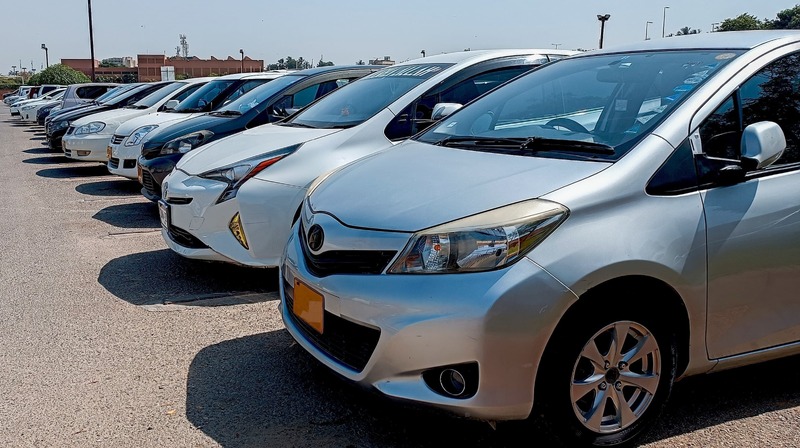ISLAMABAD: The Pakistan Institute of Development Economics (PIDE) predicted a positive impact of tariff reforms in the Federal Budget 2025–26, which are aimed at seeking to move Pakistan’s economy from import substitution towards an export-led growth model.
The PIDE in a policy viewpoint titled “Impact of Tariff Reduction on Automobile Industry”, authored by Mohammad Shaaf Najib and Dr Usman Qadir released here on Tuesday provides a holistic assessment of the impact of the government’s five-year tariff reform plan on Pakistan’s automobile industry.
The report mentioned that as part of its International Monetary Fund (IMF)-backed economic reform agenda, Pakistan has agreed to gradually open up certain sectors, including the automotive industry. Pakistan has embarked on a sweeping five-year tariff reform plan, unveiled in the federal Budget 2025–26, with the explicit aim of shifting from import substitution to an export-led growth model.
The reform will streamline the customs duty structure, reduce tariff slabs, and lower the average tariff rate from 19 percent to 9.5 percent by Financial Year 2030. Specifically, for the automobile sector, tariffs on Completely Built Units (CBUs) will fall from 20 percent to 15 percent over five years, while surcharges on used vehicles will be gradually removed by 2030.
For decades Pakistan has been experiencing boom and bust cycles and been hamstrung by a foreign exchange constraint that requires a bailout from the IMF and restricting economic activity each time the economy overheats. The economy invariably ends up at this crossroads every few years, back to square one and having to start all over again.
According to PIDE’s analysis, these reforms will reshape the automobile industry in several ways. On the domestic front, increased competition from imports will push local manufacturers to enhance quality and efficiency, while smaller or weaker brands may struggle, established and globally integrated firms are expected to adapt and compete.
Reduced tariffs on both CBUs and CKD imports will lower production costs, improve affordability, and potentially expand car ownership in Pakistan. While some jobs at OEMs may be at risk in the short run, new opportunities for businesses and employment are expected to emerge in import services, dealerships, after-sales, and parts markets. The net affect though will depend significantly on how the existing automobile firms react and adapt to the policy change.
At the macroeconomic level, increased imports could raise Pakistan’s import bill, creating a pressure on foreign exchange reserves and the exchange rate unless export growth keeps pace. Considering this, PIDE recommends that the government must ensure availability of the required foreign exchange to finance the increased import bill.
PIDE also stresses on the need to stick to the policy change and not roll back after initial challenges that may arise as that would prove much more detrimental for the automobile industry as well as consumers. For consumers, however, the reforms promise significant benefits, including increased and improved choice and availability of the vehicles along with competitive pricing.
Further, PIDE also recommends a new import framework particularly for the import of used cars in the country instead of the current mechanism where imports are done under three different schemes.
PIDE notes that the loopholes within these schemes are being used to import used vehicles in the country, and suggests a vehicle quality based mechanism for commercial import of vehicles in the country to uphold safety standards while ensuring fair competition and promoting consumer welfare.
It has also been stressed to facilitate the development of a robust after-sales networks and stronger incentives for electric vehicles to ensure a smooth transition to an environmentally friendly future.
The view point concludes by noting that tariff rationalisation is not just an industrial reform but also a vital step towards consumer protection, modernisation of the auto sector, and Pakistan’s integration into global value chains.
PIDE further said that the government intends to abolish the “Fifth Schedule” exemptions and eliminate protectionist regulatory complexities. However, stakeholders in the industry have expressed concerns.
Local Original Equipment Manufacturers (OEMs) caution that the sudden surge in used-car imports, potentially reaching 70,000–80,000 units annually could devastate domestic vehicle production and reverse hard-won gains in local content, employment, and investment.
Concurrently, these tariff reductions support broader environmental goals: the government plans to introduce a carbon levy and incentives for electric vehicles (EVs), with aims to achieve 30 percent EV penetration among new vehicles by 2030. A proposed petrol-diesel levy may raise Rs25–30 billion annually over five years that can fund EV infrastructure development.
Copyright Business Recorder, 2025


